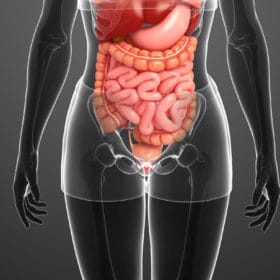Losing body fat can be a very complicated matter. This is especially true for women. This is mainly due to the fact that most women pay too much attention to the details and dwell on incidental trivialities, losing sight of the big picture. Often this behavior can be traced back to a certain tendency towards perfectionism, which is actually not a bad trait. However, this becomes a problem when it comes to body fat loss, because every body is different and doesn't necessarily behave the way it should according to the definition of a particular diet or fitness program.
If it comes to the fact that the goals get out of sight or the body behaves differently in terms of fat loss than it should be from a scientific point of view, many perfectionists understandably react with frustration. To break this deadlock, you first need to take a few steps back to look at the big picture again. From the view of individual foods, exercises and supplements, you switch to the macro level of weight loss rules. And at this level, everything seems clear, because to succeed, you only need to follow three basic rules per se. - Lose body fat slowly. - Never reduce protein consumption during your diet. - Do strength training regularly during your diet.
Rule 1 - Focus on losing body fat only slowly
Especially in this day and age, when we can get all kinds of things almost in real time, we also want to achieve success in sports as quickly as possible. That's why the first weight loss rule is by far the most difficult to follow. Even if various glossy magazines promise you that you can lose three, four or even five kilograms of body fat in one week, this does not mean that this corresponds to reality. Theoretically, such a fat loss is mathematically possible within one week. However, this is only possible if you massively reduce your food intake and also complete a truly mammoth program on the treadmill or ergometer. Five kilograms of body fat correspond to 35,000 kilocalories that you would have to burn or save within a week. In view of the fact that the average calorie requirement of a woman is 2,000 to 2,500 kilocalories per day and that you would have to jog briskly for around 35 hours to burn 35,000 kilocalories, the aforementioned plan seems both impractical and unhealthy. Even two kilograms of fat loss per week is unrealistic and not healthy in the long run.
But what is the reason for this? Well, you have evolution to thank for the built-in weight loss brake, which is also responsible for the yoyo effect. If the calorie deficit is too high due to too little food intake and too much energy consumption, your organism assumes that you are in a famine and switches to survival mode. In doing so, your body shuts down the metabolism by, for example, breaking down "unnecessary" energy consumers such as the muscles and using the freed-up muscle protein for energy production or other uses. Of course, it is not the intention to lose the hard trained muscles in the course of the diet, because they give your body its athletic shape. So, in order to burn as much body fat as possible while retaining as much muscle as possible, you need to choose a moderate calorie deficit. However, this means that you will only lose body fat slowly. But you should do it permanently, because losing weight too quickly will fuel the yo-yo effect, as your body will efficiently store every single excess calorie in the form of body fat after the long "famine", in order to be prepared for another "nutritional emergency". An ideal guideline for healthy achievable body fat loss per week is about 500 grams, which corresponds to about 3,500 kilocalories. A daily energy deficit of 500 kilocalories is therefore quite sufficient.
Rule 2 - Never reduce your protein intake while dieting
In principle, this rule builds on the first rule, because if your body has little energy available anyway and you then also cut back on protein consumption, the risk that you will lose a lot of muscle increases even with a moderate calorie deficit. This is due to the fact that protein is an essential nutrient that the body needs for the development and regeneration of all body cells and, among other things, for the production of hormones, enzymes and various messenger substances. If you consume less protein in your diet than your body needs to ensure its metabolic functions, your muscles will be depleted in order to utilize the body's own proteins. Especially in the context of a diet, a protein consumption of two grams per kilogram of body weight and day is recommended. Add to this a good one gram of fat per kilogram of body weight per day. The latter is important because fat is also a vital nutrient. If you consume too little fat, for example, even a huge calorie deficit is of no use, especially since the organism desperately clings to every gram of body fat in such a case. A high protein consumption also has an interesting side effect, because your body needs more energy to metabolize proteins than it does to metabolize fats and carbohydrates. The bottom line is that by consuming large amounts of high-quality protein, you'll actually burn a few extra calories without having to sweat for it.
Protein shake recommendations
- All in One Shape Shake
The delicious all-in-one shake with a unique composition.
- Women's Whey Isolate
The ultimate protein product - also for lactose intolerant people
Rule 3 - Do strength training regularly during your diet
Even though the third weight loss rule is actually the simplest of the three rules, it is no less important and should become second nature to you. The reason is quite simple, because even if you already create proper conditions for your body to burn as much fat as possible through a moderate energy deficit and a good protein supply, this is only half the battle. Unfortunately for us, our body is a real efficiency monster. If the body notices that there is not much energy available anyway and that you are not using your muscles through hard training, the organism figuratively assumes that you don't really need the hard-trained muscles and breaks them down. At the end of a diet without strength training, you won't look as athletic as you'd like, but in the worst case, you'll just look scrawny. Therefore, it is immensely important that you stimulate your muscles with growth stimuli even during the diet. Instead of switching to a strength endurance program or not exercising at all, you should do strength training according to the classic hypertrophy scheme. Ideally, you should do 3-4 sets of each exercise with 6-10 repetitions each. In order to achieve the maximum training stimulus in the shortest possible training time, you can put together a training plan consisting mainly of basic exercises such as deadlifts, squats, pull-ups, bench presses, etc.
Conclusion
Forget about the artificially inflated science cloud that is puffed up around the topic of weight loss and focus on these three simple rules first. If you follow them strictly, you will already achieve excellent results. Then, once you're on track, it's time to move on to more details.












